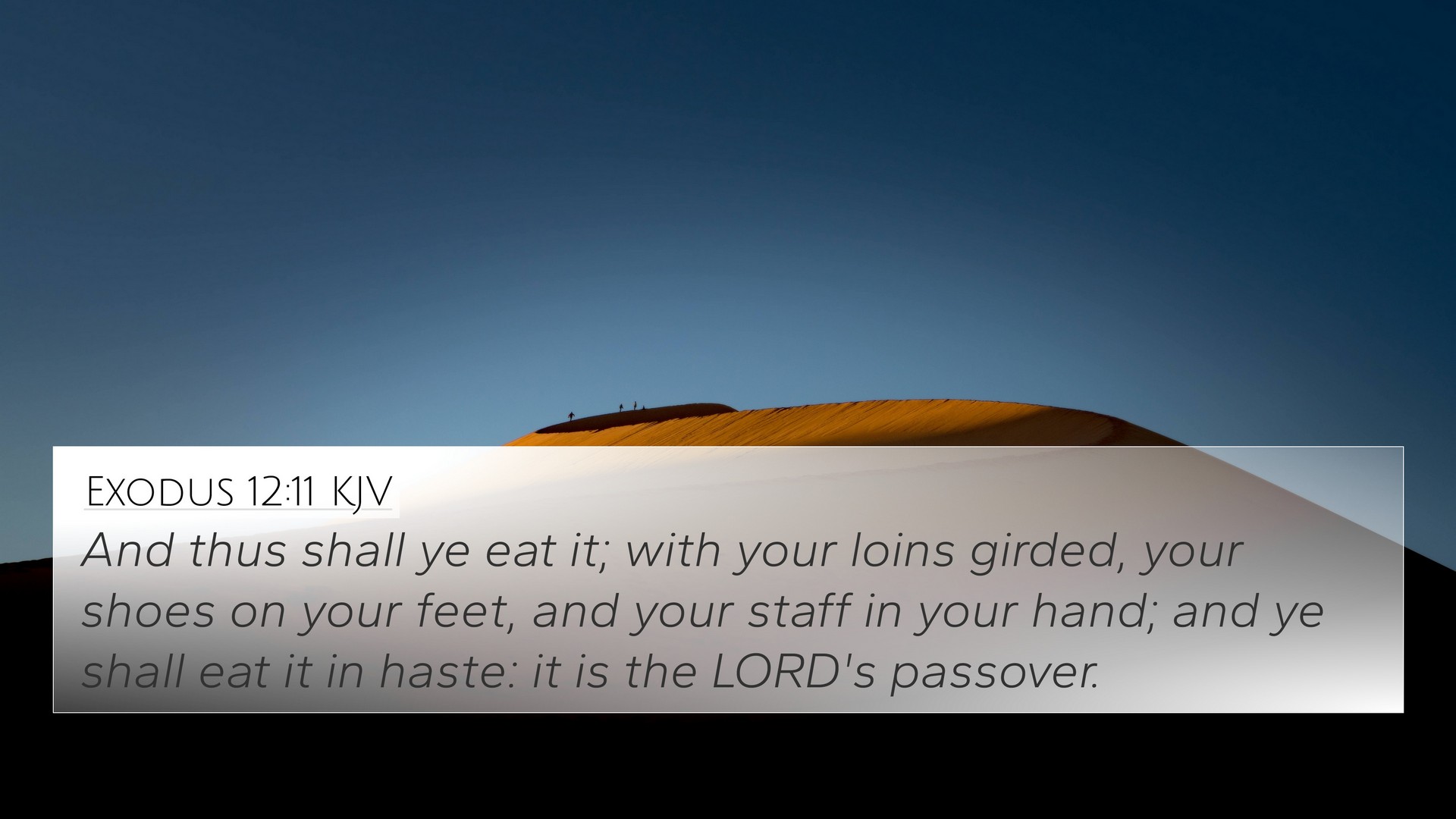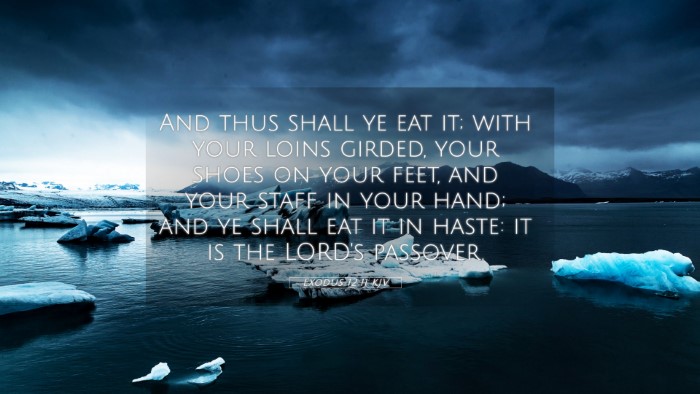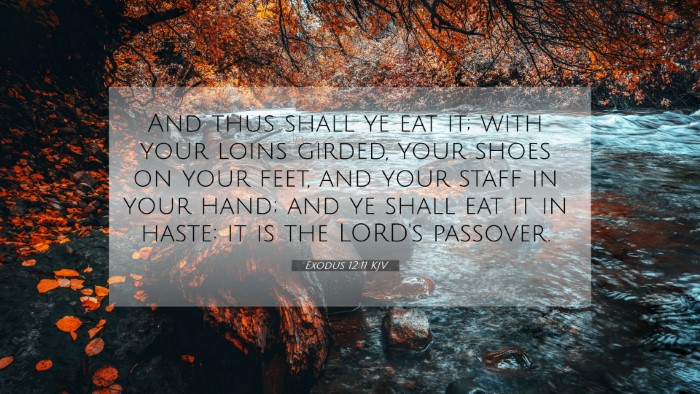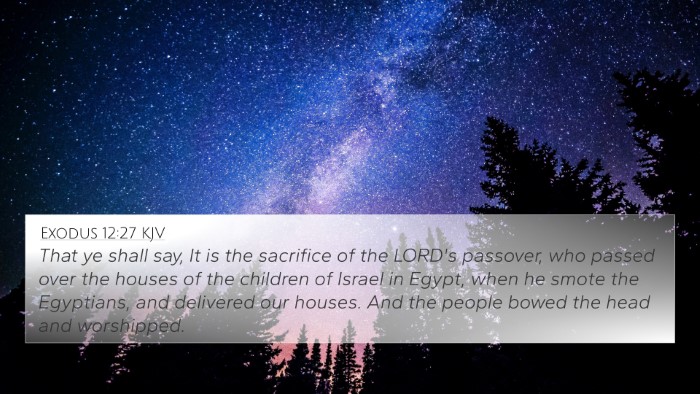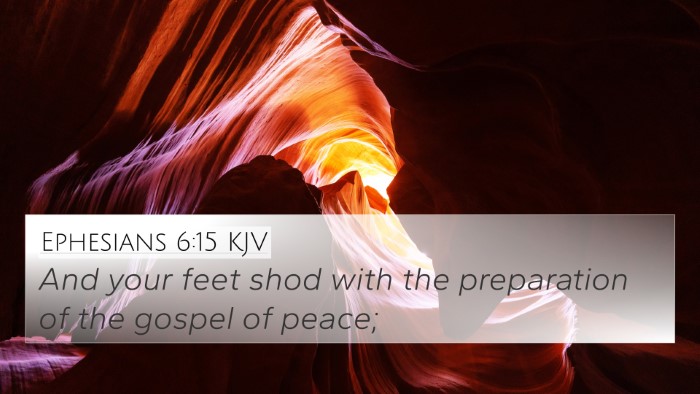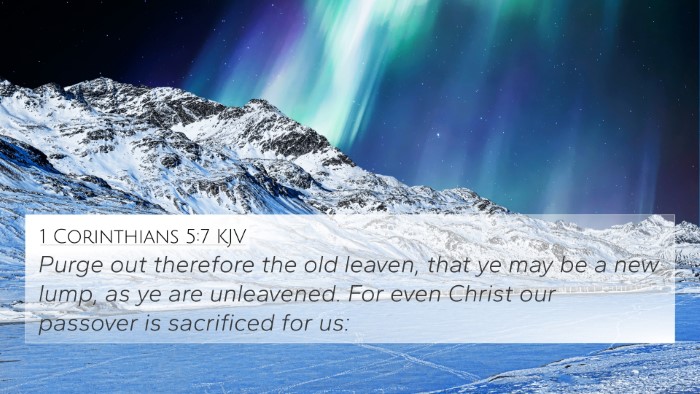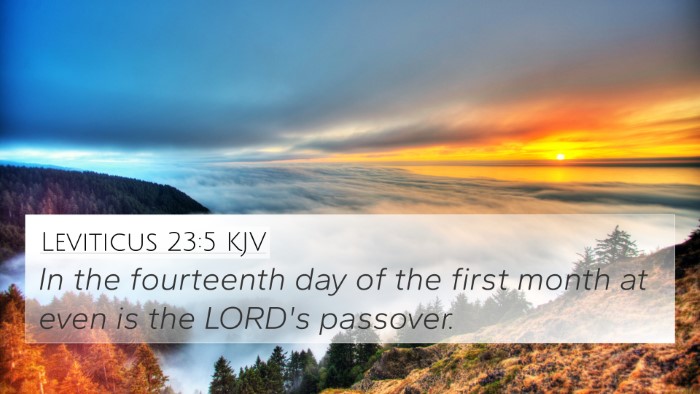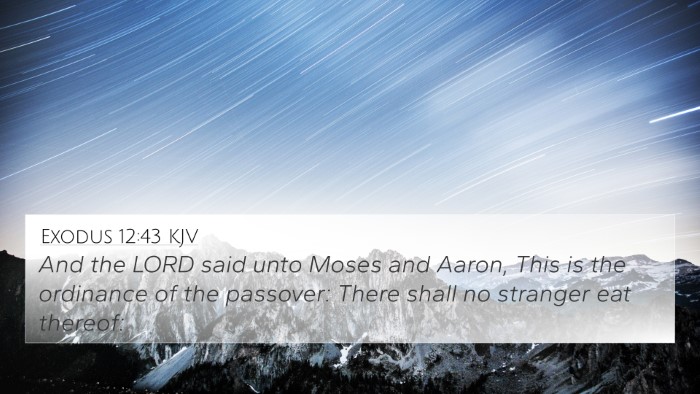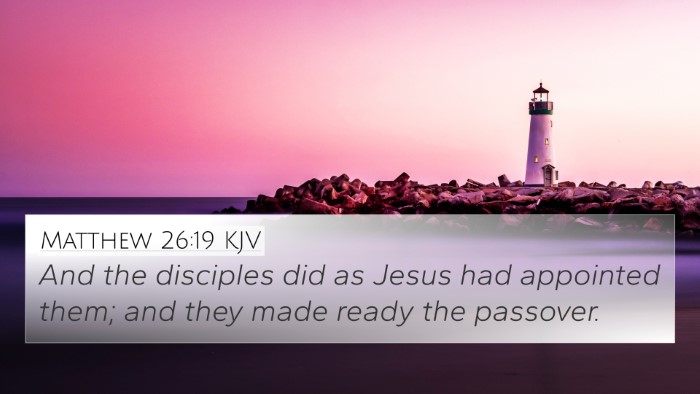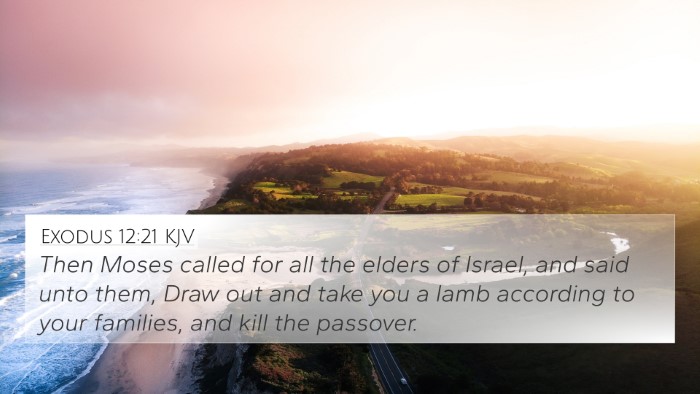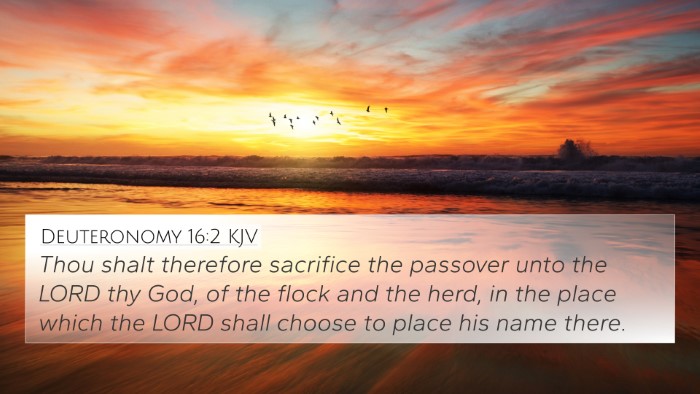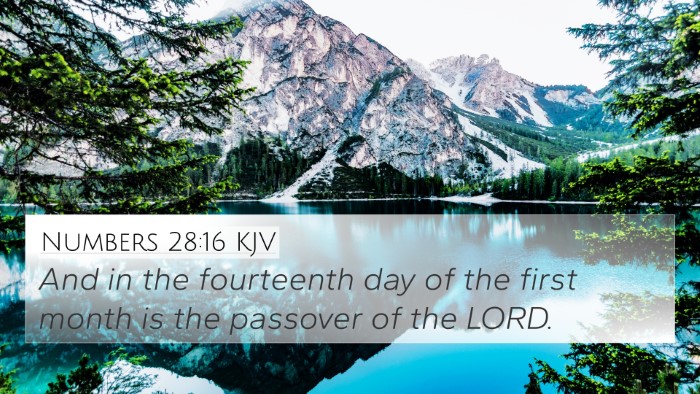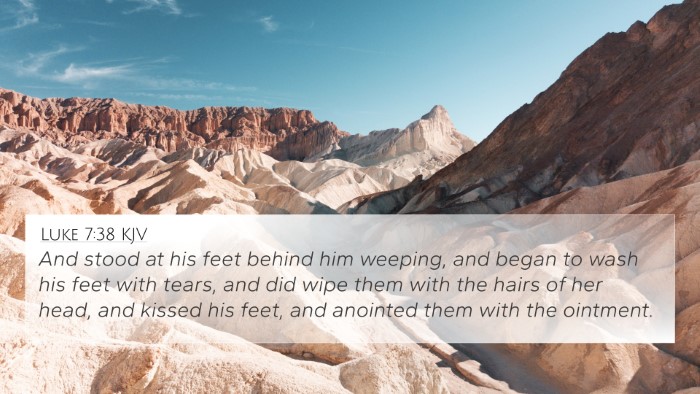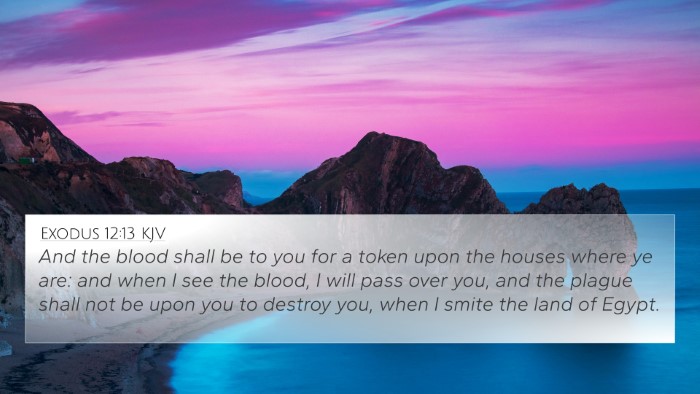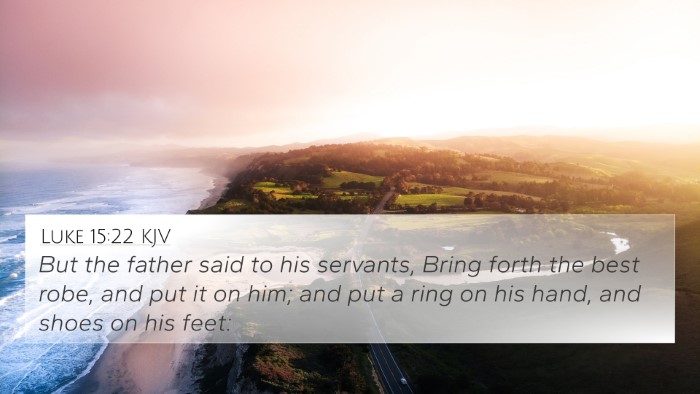Understanding Exodus 12:11
Exodus 12:11 states: "And thus shall ye eat it; with your loins girded, your shoes on your feet, and your staff in your hand: and ye shall eat it in haste: it is the Lord's passover."
Summary of Insights
This verse is pivotal in the narrative of the Passover, where God instructs the Israelites on how to prepare for their deliverance from Egypt. The urgency conveyed in the instructions highlights the need for readiness and obedience to God’s command.
Exegesis and Interpretations
Matthew Henry's Commentary: Henry emphasizes the importance of preparation and readiness as vital qualities for the Israelites. Eating the Passover in haste signifies the urgency of their departure from slavery. The girding of loins implies action and readiness to move, symbolizing a call to be prepared for God's deliverance.
Albert Barnes's Commentary: Barnes highlights the symbolic elements involved in this ritual. The act of eating the Passover dressed for travel denotes faith and expectation in God's promise of liberation. The reference to the Passover also connects with the sacrificial nature that foreshadows Christ in the New Testament, portraying Jesus as the ultimate Passover Lamb.
Adam Clarke's Commentary: Clarke focuses on the practical aspects of the command. He notes that the shoes and staff indicate the readiness for immediate departure. This preparation reflects a deeper theological truth about spiritual readiness, urging believers to always be prepared for God's guidance and intervention in their lives.
Key Themes and Connections
The following are prominent themes found in Exodus 12:11:
- Readiness for Deliverance: The necessity for the Israelites to be ready illustrates the spiritual urgency for all believers to prepare themselves for God's intervention.
- Obedience and Faith: Their compliance to God's commandments is a testament to fundamental faith and trust in divine deliverance.
- The Passover as a Typology: This event prefigures the New Testament sacrifice of Christ, illustrating the continuity of God's redemptive plan.
- Corporate Identity: The communal aspect of the Passover signifies the collective identity of the Israelites as God's chosen people.
Cross-References to Exodus 12:11
Exodus 12:11 connects thematically with the following Bible verses:
- Hebrews 11:28: "Through faith he kept the passover, and the sprinkling of blood, lest he that destroyed the firstborn should touch them."
- 1 Corinthians 5:7: "For even Christ our passover is sacrificed for us."
- Luke 22:15: "And he said unto them, With desire I have desired to eat this passover with you before I suffer."
- John 1:29: "The next day John seeth Jesus coming unto him, and saith, Behold the Lamb of God, which taketh away the sin of the world."
- Exodus 12:3: "Speak ye unto all the congregation of Israel, saying, In the tenth day of this month they shall take to them every man a lamb..."
- Romans 8:31: "What shall we then say to these things? If God be for us, who can be against us?"
- Psalm 105:37: "He brought them forth also with silver and gold: and there was not one feeble person among their tribes."
Conclusion
Exodus 12:11 serves as a crucial teaching on the themes of readiness, faith, and God's mighty deliverance. Through the lens of various commentaries, believers are reminded of the spiritual applications relevant to their lives today. The connections between this verse and others demonstrate the cohesive narrative of salvation throughout Scripture, urging a deep understanding and readiness to respond to God's call in faith.
Further Study on Cross-Referencing
For those looking to delve deeper into biblical connections, utilizing a Bible concordance or a cross-reference guide can be beneficial. These tools can help enhance your understanding of the thematic links across scripture and foster a richer personal study.
